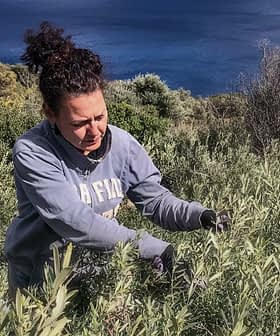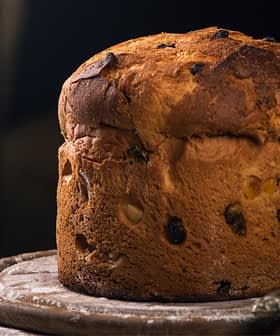Study Links Cooking Methods and Health
The researchers found some cooking methods corresponded with beneficial effects on inflammation. Heating edible oils, but not olive oil, to high temperatures had negative effects.
Spanish researchers studied the effects of various cooking methods on metabolic health and inflammation, finding that raw and pan-fried foods had beneficial effects on inflammatory markers and kidney function. While no harmful effects of fried food consumption were observed in the study, the researchers recommended avoiding cooking methods that involve adding oils heated to high temperatures, except for olive oil, which is considered stable and rich in antioxidants.
New research published in Nature Scientific Reports has identified some of the impacts of different cooking methods on metabolic health and inflammation.
The team of Spanish researchers studied how eating food raw compared with boiling, roasting, pan-frying, frying, toasting, sautéing and stewing food affects renal function, inflammation or alters other relevant biomarkers.
Investigating how food preparation influences its nutritional value has become an increasingly common field of study as consumers become more aware of what and how they eat.
See Also:Cooking With Extra Virgin Olive Oil“Classical nutritional epidemiology has focused on an approach based on individual foods, examining the role of certain foods or food groups on health,” Montserrat Rodríguez-Ayala and Pilar Guallar-Castillón, researchers at the Autonomous University of Madrid and co-authors of the study, told Olive Oil Times.
“However, cooking methods have hardly been explored using population data,” they added. “Cooking methods have mostly been addressed when studying their effects on physicochemical characteristics of foods or bioavailability of nutrients.”
The cross-sectional study conducted on almost 2,500 Spanish residents over 65 years of age showed trends, such as better health outcomes from eating larger quantities of raw or pan-fried food.
The researchers also stressed the disadvantages of cooking with vegetable oils – though notably not olive oil – at high temperatures.
In their study, researchers found that four different cooking methods – raw, boiling, pan-frying and toasting – corresponded with beneficial effects on several inflammatory markers, as well as improved kidney function, thyroid hormone balances and vitamin D levels.
None of the cooking methods, including frying food, showed significant detrimental associations for the inflammatory and metabolic biomarkers the researchers assessed.
“Our study is a first approach to the effect of cooking methods on health,” Rodríguez-Ayala and Guallar-Castillón said. “Therefore, with the currently available information, recommendations to avoid certain cooking methods cannot be made. However, cooking methods that do not include adding oils heated to high temperatures are safe and can potentially be associated with health benefits.”
Many dietary guidelines suggest that raw and boiled foods provide more health benefits than fried foods, the consumption of which should be limited.
“Our results agree with this recommendation for the consumption of raw and boiled foods,” Rodríguez-Ayala and Guallar-Castillón said. “However, in our population, no harmful effect of fried food consumption was observed, possibly because olive oil is the main source of fat for frying in Spain.”
“Olive oil is considered very stable when heated at high temperatures and is also rich in antioxidants and flavonoids,” they added. “Other added oils or fats have not shown these properties. Therefore, the results could vary in populations using other oils or fats for cooking.”
“In Spain, olive oil consumption might exert a positive influence on health, which could influence to some degree the effect on the healthiness of different cooking methods,” the researchers continued. “The role of olive oil as a cooking fat could be very important, but it has not yet been quantified.”
Additionally, Rodríguez-Ayala and Guallar-Castillón noted that the study, comprised of 53 percent female volunteers and an average age of 71, was not representative of the Spanish population.
They suggested people in this demographic might eat healthier food compared to younger generations, which could suggest different results even when cooking methods are considered.
“So far, no similar study has been conducted in younger populations, and it is to be expected that the results could vary to some degree,” Rodríguez-Ayala and Guallar-Castillón said. “Diet quality is lower among younger people because adherence to the Mediterranean dietary pattern has decreased among younger people and also because the consumption of ultra-processed foods has increased.”
“Therefore, we start from a more disadvantaged metabolic situation,” they added. “However, we believe that the general rule of avoiding cooking methods with added oils at high temperatures would also be beneficial for younger people.”
The same researchers were also involved in a separate study that found olive oil consumption to be associated with lower risks of cardiovascular disease and stroke. The higher the quality of the olive oil, the better the outcome.
“Our research group has shown that olive oil consumption did not increase coronary risk nor the risk of stroke, despite being an energy-rich food,” Rodríguez-Ayala and Guallar-Castillón said. “Recently, we have also shown that virgin olive oil consumption was associated with less atherosclerosis in carotid arteries and femoral arteries as well as a decrease in coronary calcium.”
The researchers added that further longitudinal and long-term studies must be done to expand the current knowledge about cooking methods and establish more robust associations.
They explained that those methods should be explored for the role they can play in different populations, such as non-Mediterranean, and different age groups.
“Our results are a first step in the process of establishing the role of cooking methods on health,” Rodríguez-Ayala and Guallar-Castillón said. “However, more basic and population-based research is needed before establishing final conclusions.”
“Undoubtedly, knowing what cooking methods could be included as healthy eating habits is an essential part of the prevention and management of chronic conditions that are related to diet,” they concluded. “A new field of dietary prevention has been opened up.”
Share this article









